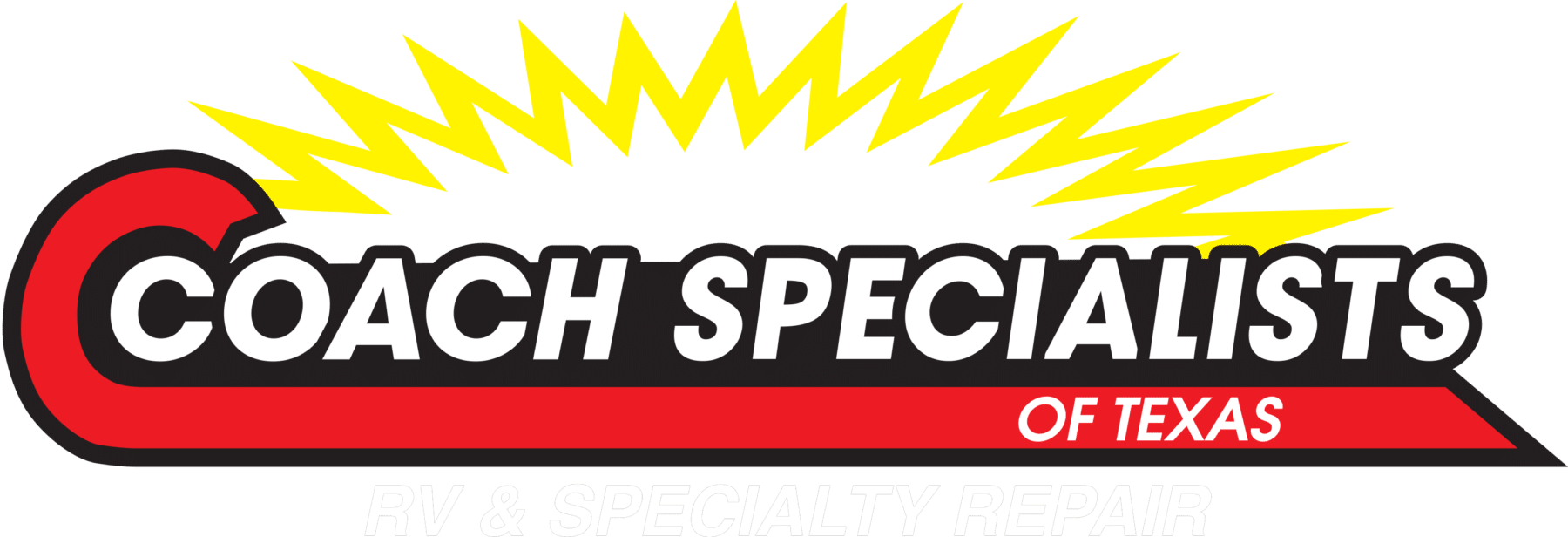A good portion of what we get asked at Coach Specialists of Texas involves water damage repairs on RV’s, travel trailers and motorhomes. We have said it many times but nothing short of a collision will kill an RV faster than water inclusions.
But RV’s stay outside for most of their lives, and exposure to water is inevitable. That is why you must remain vigilant with checking for sealants and keep a watchful eye on every inch of the RV.
Keep an eye out for soft spots in walls and flooring, brown spots around vent openings and windows, which is a sure sign of a leak somewhere.
But what happens when water does get into your RV and cause damage? Is it going to be covered under your insurance?
First of all, under the laws that regulate insurance companies and policies, Insurance companies are not required to cover water damage. However, very cautious policyholders or seasoned RV’ers will sometimes opt for water damage coverages in addition to their policy as a cheap insurance against a total loss.
With so much water being transported in an RV, and in close proximity to an RV through water lines, water leaks can often happen slowly over time and cause mold and mildew growth which can cost thousands to repair, and could cause the RV to get totaled.
Insuring Part-Time Vs. Full-Time RV’ers.
We have all flirted with the idea of living out of an RV full time. The notion of being totally free to roam the country carries with it a sense of freedom. Full-time RVers will need more coverage than part-time RV’ers. The reason is Insurance companies are banking on the fact that your RV will be sitting in storage for most of your ownership. Full-time RV owners will need to get a coverage similar to homeowner’s insurance. Full-time liability insurance generally covers any type of damage, from water damage to collision and even and fire damage.
If water inclusion damage protection is a worry to you, we cannot stress enough the importance of ensuring that you are covered for water damage no matter what type of policy you have.
The age, make, and model of your RV will change the amount you will have to pay for water damage coverage. The reason is that older RVs are far more susceptible to leaks or to a prior water incident that could become a problem later.
Common Reasons why an RV insurance claim for water could be denied
If you do not have specific water damage coverage, there are a number of reasons that an Insurance company could point to and deny your claim. In your policy, they will be listed in the “Exclusions” sections. Examples of inclusions include
- wear and tear
- prior loss or damage
- manufacturing defects
- improper or lack of routine maintenance, or failure to perform maintenance as instructed by the manufacturer
- contamination, pollutants, odors, sewage, or waste (Leaking pipes or sewage waste removal systems)
- freezing
- gradual accumulation of snow or ice on a vehicle
- to any vehicle caused directly or indirectly by any of the following:
- water leakage or seepage
- wet or dry rot;
- rust or corrosion;
- dampness of atmosphere or extremes of temperature; or
When Is Water Damage Covered By Your RV Insurance
The exclusions listed above are typically not considered in the event of sudden and immediate damage caused by the failure or breakage of a hot water heater, fresh water or wastewater plumbing system, dishwasher, refrigerator, washing machine, or similar appliance, or by a freak storm or flooding.
So the lesson in all of this is to consult your insurance agent and make sure that water damage coverage gets added to your policy.
